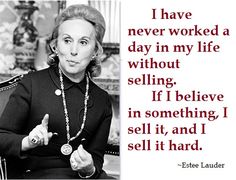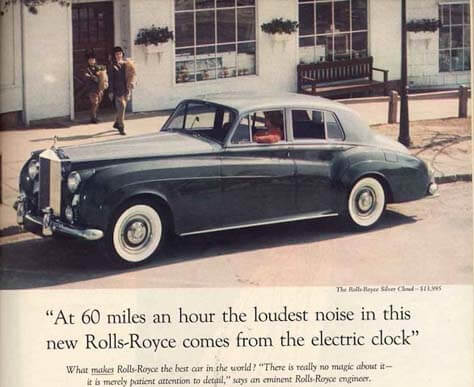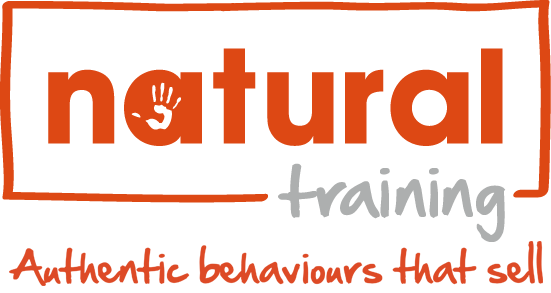Here’s What I Would Tell My 28-year-old Self About Sales
Today I turn 44. I own this successful sales training business called Natural Training, which puts me in the unique position of selling sales to salespeople. I will be selling for the rest of my life, because I love it – I’m hooked on it. And appropriately, today I’ll be spending my birthday on a train travelling to Hook in Southeast England, visiting one of my favourite customers to try and sell them some stuff. I’ve been organising my thoughts, and my deck, since 5am. I reckon I’m going to be successful.
Today, still, nothing much comes close to the thrill of nailing a deal. In fact, selling is even more enjoyable these days because I have the accumulated scar tissue of learning from every moment. I feel I’m so much better at selling than when I was in my twenties. Here are the lessons I’ve learned along the way that I would say to my 28-year-old self. I hope they serve as inspiration to younger salespeople who might get there a bit quicker:
1) Believe in what you are selling
Customers can smell a lack of confidence like bad aftershave. They look to you for your ability to problem-solve, and your expertise. But most of all they look to you for belief. A belief that you can change their world for the better. A belief that you have done this before, many times, successfully. A belief that in this case, choosing you is the best option. A belief in your colleagues, because they are the best in the world at delivering your solution. My favourite sales quote is about belief, and it’s from one of the most successful saleswomen ever: “If I believe in something, I sell it, and I sell it hard.” Estee Lauder.

2) Be relevant to your customer’s business
You are not selling your product. You are selling your ability to fix a problem. To do so, you need to be relevant to your customer’s world. Being relevant to customers means you must do your homework. You have to find the edge, the insight, that other salespeople don’t have. Otherwise you are all saying pretty much the same things. “If you understand your customer’s world, you can sell to them with ease.” Perry Marshall
3) Go deeper with fewer customers
You can probably cut your prospecting list in half, and then half again, and be more successful. Work out the profile and shape of your best customer, and sell to other customers who are exactly like them. Go in deep with just a few customers and you will be much more successful. When you go in deep, you uncover things that give you a proper edge in selling. David Ogilvy is probably the world’s most famous ad-man – the Don Draper of his time. When he chose to pitch for a client, he won. The reason is because he did a deep-dive into his customer’s business. When he pitched for Rolls Royce, he read the car’s owner manual from cover to cover, and found out that the engine was the quietest in it’s class. Which led to one of the most famous headlines of all time: “At 60 miles per hour the loudest noise in this new Rolls Royce comes from the electric clock.”

4) Lay off the booze
It’s easy to get caught in a drinking culture in sales. The reason is selling is jam-packed with what I call “doing people”. Salespeople are typically the ones who love action; they are naturally high energy and will often be the ‘go-to’ people who are organising the next holiday. Having ‘big energy’ is also a defence mechanism against constant rejection – salespeople definitely need a thick skin. Being a salesperson and hanging around with similar high energy, proactive types is exhilarating. However, it does have it’s drawbacks. A few drinks here and there can often turn into going out most nights of the week.
Pretty soon, half of your take home pay is spent on booze. You start missing a few key appointments. You lose the respect of those around you. All of this affects your selling – even though you tell yourself it doesn’t. So, I would firmly grab by 28-year old self by the shoulders, and tell him to drink as much as you want – on a Saturday night only. I gave up drinking for a month once, and I felt so great that stayed off the booze for over two years. During that time I sold more than I had ever sold before. Enough said.
5) Do your own marketing
You can sit around and blame your marketing department as much as you want, or in less than 2 hours a week you can do your own marketing and be incredibly successful. This article is an example of my own marketing. You sit down, and you write. You blog. You like and appreciate other people’s work. You hone and sharpen your LinkedIn profile. You Google yourself and kill the images of you in Ibiza. You develop a voice that speaks to thousands of people rather than just a few. It’s so easy to publish these days – within minutes of finishing this article I know that it will be seen by about 10,000 people, for free. You can do all of this in 20-30 minutes a day, and you probably don’t need to look any further than LinkedIn and Twitter to have a profound personal marketing impact.
6) Help fearful customers
Customers are full of fear. Buying things, particularly expensive things, is fraught with uncertainty. Customers are nervous about buying because if they get it wrong, they will be made to look foolish in front of their peers. That’s why a lot of buying ‘decisions’ end up in no decision at all. It’s easier to do nothing than to make a bad choice. That’s why you have to become an expert in these two words: “change” and “risk”. A sale is a change – asking customers to move from one state to another state. And with change comes risk, which you must manage for them. The best book I’ve read on change is called Switch: How to Change Things When Change Is Hard. It will teach you how to show your customers a more certain pathway through an uncertain time.
7) Find a formula, and double down on it
Selling is not about constant reinvention. Instead, it’s about finding a process that works, and doing more of it. If you sell a £15,000 solution to a web design company, work out how many more web design companies there are, and sell the same thing to them. Richard Branson once said that making money is boring – you find a formula and hit the repeat button. This is true of you too. The answer is right in front of you – look at your customer list and work what a great deal looks like, and exactly how you won it, and then double down on your success.
8) Trust the morning
Most of the bad decisions I make are when I’m tired. All of the brilliant decisions I make are when I’m rested. There’s no need for you to agonise over things tonight, and mull over everything in your head. Instead, go to bed early, set your alarm for 5:30am, and trust your ability to think clearly in the morning. Everything will be fine tomorrow. Everything you do can be improved, withdrawn, or changed in the morning. Rest that controversial email, and send it in the morning. Read over that important proposal in the morning. Do some quality reading in the morning and it will inspire you for the whole day.
9) Don’t pitch too soon
Yes, you’re proud of your product and you want to tell the world about it. But the world may not need to hear it – yet. Listen, learn, and that will help you to make your pitch even better. You know that you’ve nailed a great pitch when your customer is leaning in to the conversation, and their eyes are sparkling.
10) Your proposal isn’t the ‘sale’
We are all guilty of spending countless hours on written proposals, in the hope that they will do the selling for us. If you think your prospects are reading every word of your proposal then you are kidding yourself. The average time spent reading proposals is about 2 minutes, and most of that is on the pricing page. Proposals aren’t the ‘sale’ – instead they are written confirmation of the sale. There should be no surprises (such as price) in the proposal. Everything should have been talked about, objections should have been solved, and your solution should be spoken about clearly, all prior to the proposal being sent. That will also prevent you wasting your time on proposals that aren’t going anywhere.
11) Qualifying prospects out is more important than qualifying them in
If only I could get back all the hours, days and months I’ve spent trying to sell to prospects who were never going to buy. In sales we have to be optimistic – that sense of optimism gets us through the tough times. But what it can also lead to is ‘happy ears’ – a selling disease that means you are only hearing what you want to hear, rather than facing the truth. Be ruthless with your list, and treasure your time. If there are prospects in your pipeline that aren’t budging, call them up and say “As it’s been 6 months Ms Client, I think it’s best that I take you off my list for now. When you’re ready, I would welcome your call, and we can talk again about how we can help you.”
12) Sometimes a win is a loss
A bad client can tear your company apart. Great people you have will leave, and you will lose money. If you sniff out a client with poor values, then back off – quickly. Leave that customer for your competitors, and find more customers who do match your value system.
13) Read quality business literature every day
In 2015 Mark Zuckerberg gave himself the challenge of reading a book a fortnight. He did it. If a first-time father, and leader of one of the biggest companies in the world can read 26 books a year, so can you. Business books contain the accumulated knowledge of people who have lived your sales life before you have, and have techniques that will seriously help you. Which means you can fast-track your career for the cost of a coffee. Resolve to do 20 minutes of quality business reading every morning and you will notice the difference immediately.
14) Be natural
I’ve saved the best until last. When you sell in your own natural style, your words and your behaviour have real authenticity. Being ‘yourself’ is the most powerful tool you have. Throw that script away, and be careful about adopting other people’s mannerisms. For example, if you’re quiet and introverted, that’s fine, you can definitely work with that. Bill Gates is introverted too, and he has sold more stuff than anyone else walking the planet.
Matt Drought is the CEO and Founder of Natural Training, we’re focused on making customers serious amounts of sales revenue through innovative sales training programmes such as our flagship Natural LIVE telesales programme. Call the team at Natural today on 0207 043 1582 to find out how you can instantly impact your sales revenue – naturally.
Got a comment?
Catch us on Social Media and join the discussion!


